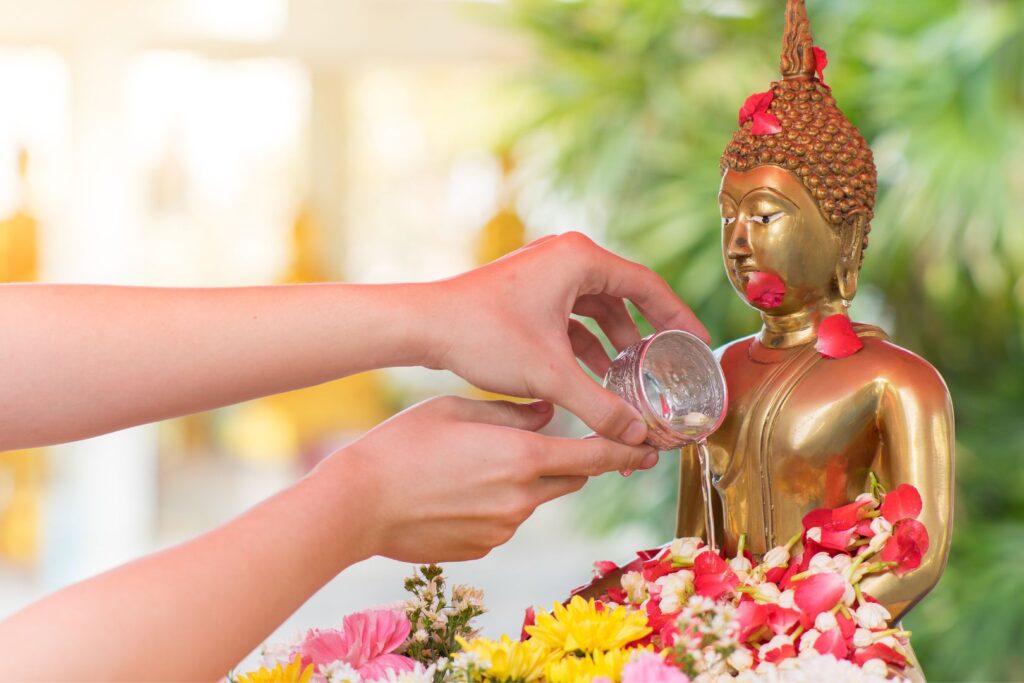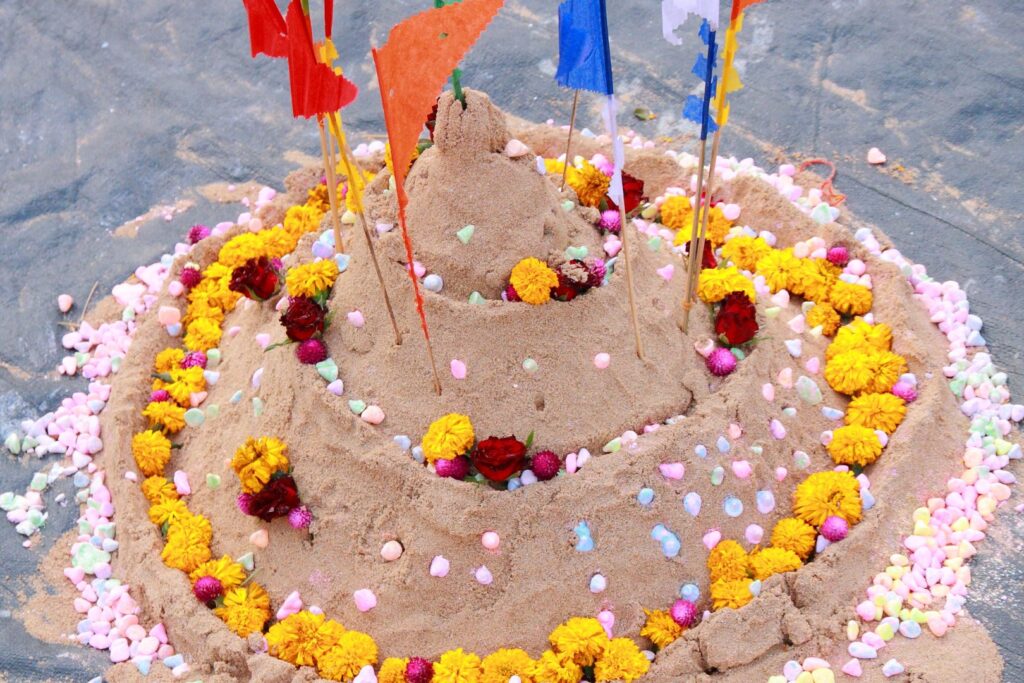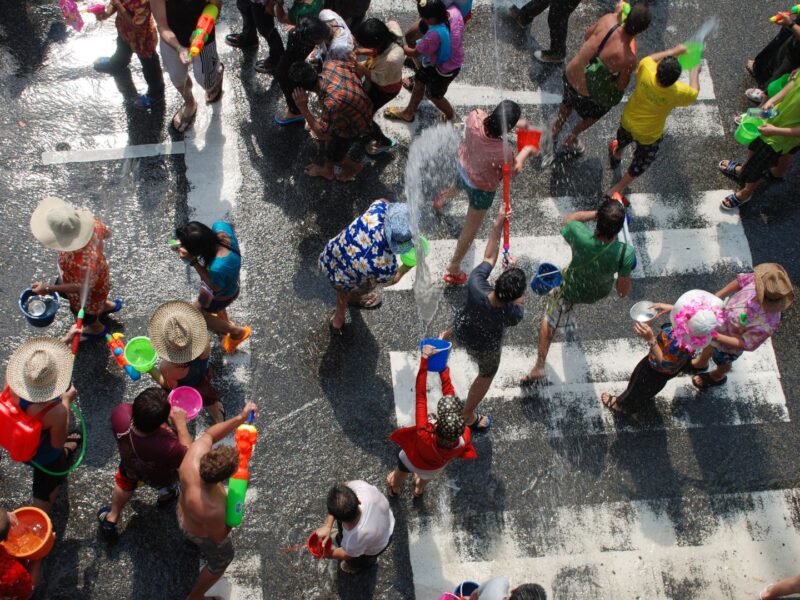Songkran, also known as the Water Festival or the Thai New Year, is an exciting and colorful festival celebrated in Thailand every year from April 13 to 15. The festival has its roots in the Hindu religion and is all about new beginnings, fresh starts, and cleansing oneself of negative energy. Songkran is all about water, which is considered a symbol of good luck, prosperity, and purification. It’s possible to argue that the Songkran water festival is one the most messiest festival, but it’s undoubtedly one of the most drenched celebrations in Asia.
The Traditions of Songkran

The word Songkran comes from an ancient Sanskrit language dating back thousands of years, which means ‘to step into’ or ‘enter’. The origins of Songkran can be traced back to ancient times, when water was used to symbolize purification and renewal. One of the iconic rituals of Songkran is to pour water over Buddha statues and others to wash away their sins and bad luck and to welcome the new year with a fresh start.
While the original tradition was to sprinkle water on people, over time the tradition evolved to include more playful and joyful water-based activities, such as throwing water balloons and splashing others with water guns. Today, Songkran has become a holiday that brings people together in a celebration of community, culture, and fun.

Song Nam Phra (‘Pouring Water on Monks’) Day is observed on the first day of the new year. It is marked by Buddha image processions throughout the country. However, it is also the day of the largest water fights, adding to the occasion’s festive atmosphere. Also, it’s a tradition during Songkran to pour scented water over the hands of elders as a way of showing respect and gratitude, and to ask for blessings in the New Year.
On the second day of Songkran, known as Wan Nao, offerings of food and alms are given to monks. There is also be a ceremony known as song nam pra in Thai, which involves bathing the Buddha. This can be done in a temple or at home – essentially anywhere there is a Buddha statue. The final day of Songkran is filled with massive water fights.
Also, many people create sand pagodas, also known as Chedi Sai, which are intricate structures made of sand and decorated with flowers built on the grounds of local temples. The purpose of these sand pagodas is to honor ancestors and provide a spiritual offering.
Feasting in the New Year
No festival in Thailand would be complete without an abundance of delicious food and drink, and Songkran is no exception. During the festival, you will find street vendors selling all kinds of sweet and savory treats, from sticky rice and mango to grilled meats and spicy curries.
To wash down all that tasty food, you can enjoy a range of refreshing drinks, including coconut water, fresh fruit juices, and icy cold beers. Some regions of Thailand also have their own unique drinks that are associated with Songkran, such as chrysanthemum tea in the north and sugarcane juice in the south.
The Best Places to Celebrate Songkran
While Songkran is celebrated across Thailand, there are some cities and regions that are particularly famous for their festive atmosphere and elaborate celebrations, such as Bangkok, Chiang Mai, Pattaya, and Phuket.
For party animals, Pattaya is the perfect destination for a wild and unforgettable celebration. Meanwhile, Chiang Mai offers a more traditional cultural experience with its famous procession and water fights. Phuket, on the other hand, provides an excellent combination of beach and city festivities.
Lastly, Khao San Road in Bangkok offers an unforgettable, modern celebration and is particularly popular with the backpacker crowd. Overall, the Songkran Water Festival is a joyful celebration of water, culture, and community that is not to be missed whether you are a first-time visitor to Thailand or a seasoned traveler.

“Take memories only, leave footprints behind.”
